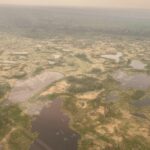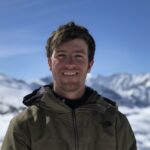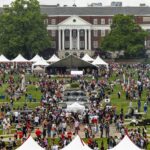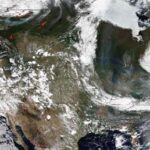By: Zoe Sagalow
Publisher: The Diamondback
Published: August 15, 2013
Students and faculty are one step closer to being able to observe climate change negotiations of the United Nations Framework Convention on Climate Change, after the U.N. Framework approved this university to become an observer organization this month.
The convention started in 1992 as a way for countries to discuss global temperature increases and the effects of climate change. As an observing member, the university will be able to send researchers to watch environmental policy changes happen — a key opportunity for scientists involved with the university’s Council on the Environment.
As of Friday, the university was officially listed as a member, said Catherine Stephens, planning, programs and communications director at the environmental council. The council is an advisory group that focuses on environmental ties to research, education, outreach and economic development.
“We’re very excited because there were a lot of Big Ten schools that were already members, as well as Ivy League schools,” said Stephens, who wrote and submitted the university’s application.
Both undergraduate and graduate students interested in climate change will be able to join faculty in observing the negotiations at U.N. sessions. Faculty will be able to participate in the policy-making process by offering their expertise to policymakers and civil society groups in attendance, Stephens said.
“While [students] won’t be able to have a seat at the table, they’ll be able to look over the shoulders of the people that have a seat at the table, which is going to be important both for the students and for the faculty at the university,” said Antonio Busalacchi, chair of the environmental council.
The council will serve as a liaison between the university and the U.N. convention, Stephens said. Faculty have already begun contacting her about becoming delegates.
The U.N. convention is the body within the U.N. that sponsors the Intergovernmental Panel on Climate Change, an arena in which the scientific community comes together with the policy community, Busalacchi said.
“I think it’s most important for students, so that they can really see the intersection between the science and the policy,” he said.
Observers must have credentials from a member institution. Before the university’s recognition as an observer organization, a few faculty members attended negotiations for their research wearing badges from other universities, said Dana Fisher, director of the university’s Program for Society and the Environment. Fisher said she looks forward to attending future sessions with badges indicating her affiliation with this university.
“It’s nice to be able to go as a group,” Fisher said.
Joseph Waggle, a sociology doctoral candidate focusing on the science-policy interface, said the convention observations would enhance his research.
“My dissertation focuses on how the political elite in the United States engages with science on politically contentious issues, and climate change is one of the issues I’m looking at,” Waggle wrote in an email. “Having an opportunity to observe the UNFCCC negotiations would be an unprecedented opportunity to situate my own work within the larger global debate on climate change.”
Reprinted from The Diamondback with permission. http://www.diamondbackonline.com/news/campus/article_6db8d97c-0562-11e3-ac22-001a4bcf6878.html.






